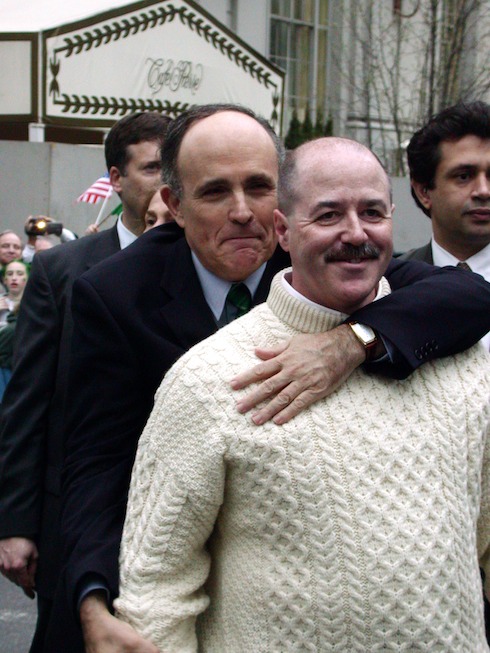When the gang that couldn’t ratfuck straight met Rupert Murdoch’s actual journalists

Sometimes October surprises you:
The three had pinned their hopes for re-electing the president on a fourth guest, a straight-shooting Wall Street Journal White House reporter named Michael Bender. They delivered the goods to him there: a cache of emails detailing Hunter Biden’s business activities, and, on speaker phone, a former business partner of Hunter Biden’s named Tony Bobulinski. Mr. Bobulinski was willing to go on the record in The Journal with an explosive claim: that Joe Biden, the former vice president, had been aware of, and profited from, his son’s activities. The Trump team left believing that The Journal would blow the thing open and their excitement was conveyed to the president.
[…]
Mr. Trump and his allies expected the Journal story to appear Monday, Oct. 19, according to Mr. Bannon. That would be late in the campaign, but not too late — and could shape that week’s news cycle heading into the crucial final debate last Thursday. An “important piece” in The Journal would be coming soon, Mr. Trump told aides on a conference call that day.
His comment was not appreciated inside The Journal.
“The editors didn’t like Trump’s insinuation that we were being teed up to do this hit job,” a Journal reporter who wasn’t directly involved in the story told me. But the reporters continued to work on the draft as the Thursday debate approached, indifferent to the White House’s frantic timeline.
When Mr. Trump stepped on stage, the president acted as though the details of the emails and the allegations were common knowledge. “You’re the big man, I think. I don’t know, maybe you’re not,” he told Mr. Biden at some point, a reference to an ambiguous sentence from the documents.
As the debate ended, The Wall Street Journal published a brief item, just the stub of Mr. Areddy and Mr. Duehren’s reporting. The core of it was that Mr. Bobulinski had failed to prove the central claim. “Corporate records reviewed by The Wall Street Journal show no role for Joe Biden,” The Journal reported.
Asked about The Journal’s handling of the story, the editor in chief, Matt Murray, said the paper did not discuss its newsgathering. “Our rigorous and trusted journalism speaks for itself,” Mr. Murray said in an emailed statement.
And if you’d been watching the debate, but hadn’t been obsessively watching Fox News or reading Breitbart, you would have had no idea what Mr. Trump was talking about. The story the Trump team hoped would upend the campaign was fading fast.
Whomp-whomp. As Smith observes, albeit less critically and with more passive voice than he should, this is radically different than the approach elite editors and reporters took in 2016, i.e. making Steve Bannon, Julian Assange, and the Comey and Chaffetz comedy duo their assignment editors:
By 2015, the old gatekeepers had entered a kind of crisis of confidence, believing they couldn’t control the online news cycle any better than King Canute could control the tides. Television networks all but let Donald Trump take over as executive producer that summer and fall. In October 2016, Julian Assange and James Comey seemed to drive the news cycle more than the major news organizations. Many figures in old media and new bought into the idea that in the new world, readers would find the information they wanted to read — and therefore, decisions by editors and producers, about whether to cover something and how much attention to give it, didn’t mean much.
[…]
Perhaps the most influential media document of the last four years is a chart by a co-director of the Berkman Klein Center for Internet and Society at Harvard, Yochai Benkler. The study showed that a dense new right-wing media sphere had emerged — and that the mainstream news “revolved around the agenda that the right-wing media sphere set.”
Mr. Bannon had known this, too. He described his strategy as “anchor left, pivot right,” and even as he ran Breitbart News, he worked to place attacks on Hillary Clinton in mainstream outlets. The validating power of those outlets was clear when The New York Times and Washington Post were given early access in the spring of 2015 to the book “Clinton Cash,” an investigation of the Clinton family’s blurring of business, philanthropic and political interests by the writer Peter Schweizer.
Whether the mainstream press has actually learned not to be the indiscriminate puke funnel for right-wing propagandists and ratfuckers or whether this decision will be limited to the present circumstances, we shall see.


